Artist Statement
My work can be almost journalistic—representing current reality with minimal judgment. This way, the emotional promotion of certain aspects of reality over others is avoided.
I use a representational method to communicate because it’s the most direct and effective. The content of my work maximizes the painting language capacity, the color, the composition, and the surface condition.
The simple, flat color pattern of objects unveils the content without any unnecessary details.
This avoids the ambiguity common to most abstract painting and enhances the amount of information that is the weak point of a realism painting.
This way, the emotional elements of reality are avoided. I want to express the calmness beneath the turbulent surface, while the elements of reality remain.
My painting style becomes Super Realism, where elements of reality and content are simplified with maximum information.
Super Realism captures reality’s elements and clear content in simplified form and maximized information.
Because the digital world has become entwined in our daily lives, more symbols (language characters, emojis, etc.) are finding their way into art. I use these symbols to enhance content and concurrency.
Art has always been intertwined with social and political conditions and artists constantly confront contemporary realities. I believe the essence of painting is to communicate the artists’ understanding and emotions of the objects with the viewer.
Enjoy My Nouraeu Realisme
Artworks, 2019 - present
I’ve came back to focus on oil painting, after years working on science and technology,

"Asilomar Beach, Left", Oil on Gallery Profile Canvas, 36"x48", 2022

"Asilomar Beach, Center", Oil on Gallery Profile Canvas, 36"x48", 2022
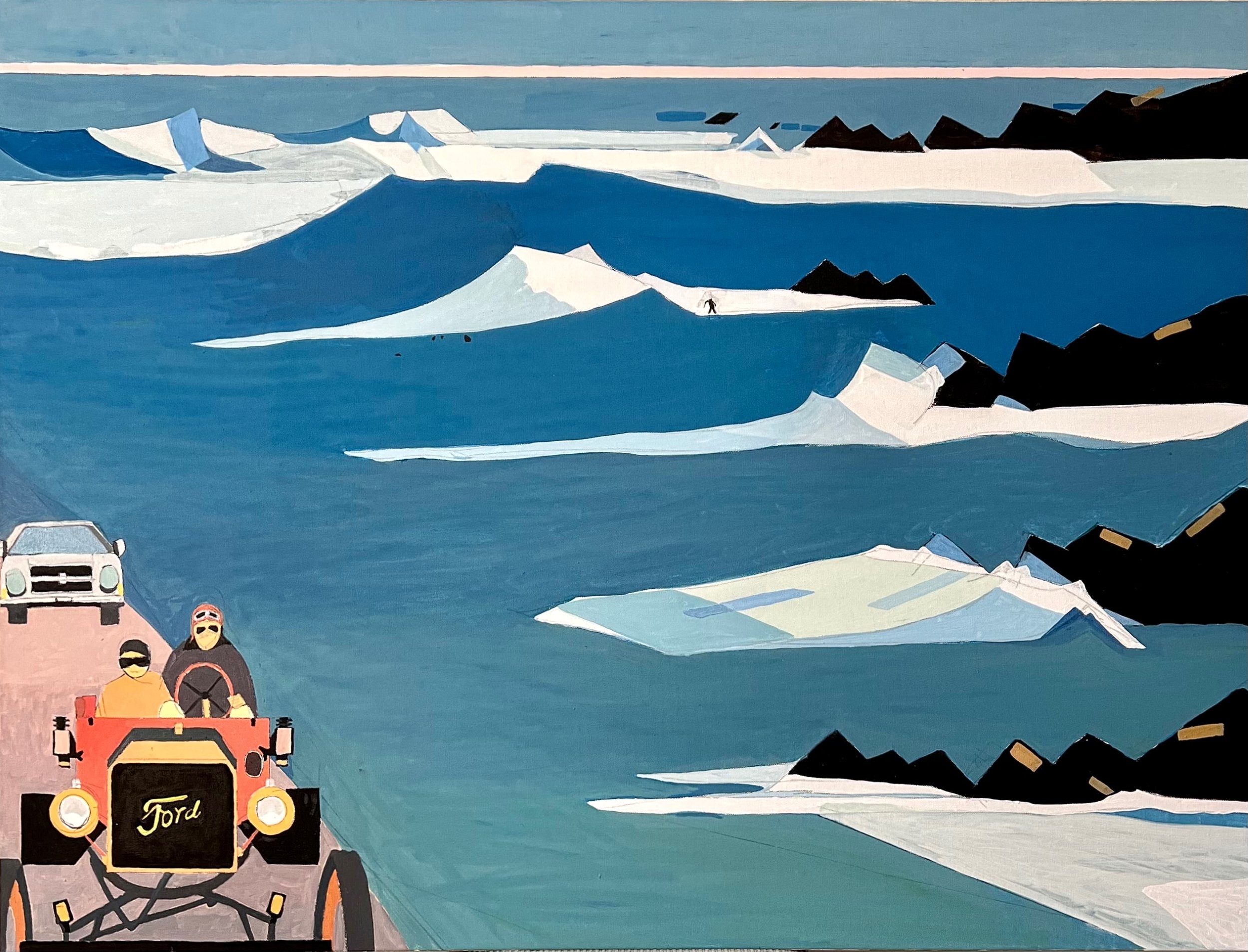
"Asilomar Beach, Right", Oil on Gallery Profile Canvas, 36"x48", 2022
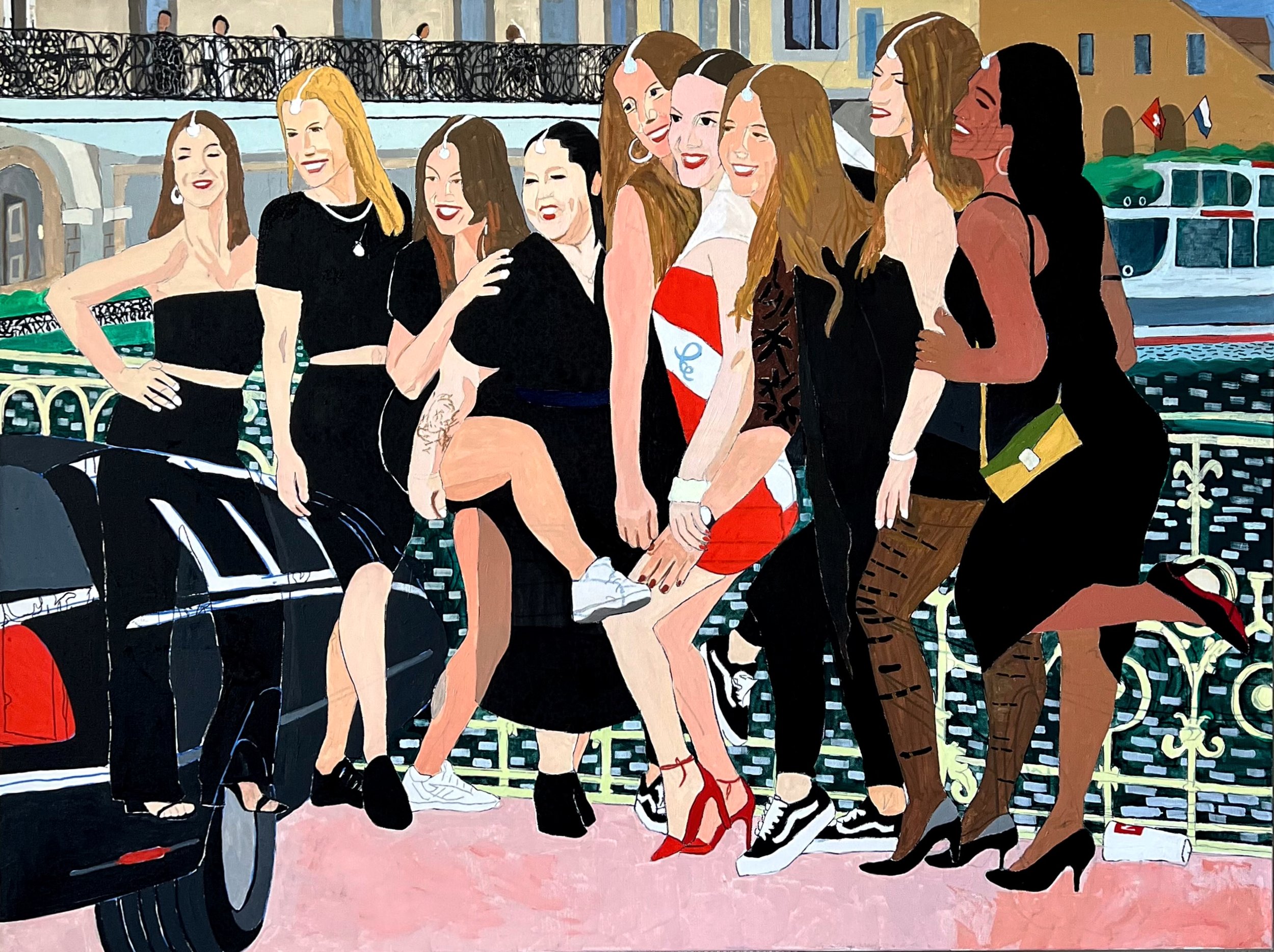
"Bachelorette Party", Oil on Canvas, 36" x 48", 2022

"Storm of Jungfrau", Oil on Canvas, 48" x 36", 2022

"Exhibition Opening", Oil on Gallery Profile Canvas, 48" x 36", 2022. Bronze Award, Camelback Gallery, 2022 Juried Intl, Competition
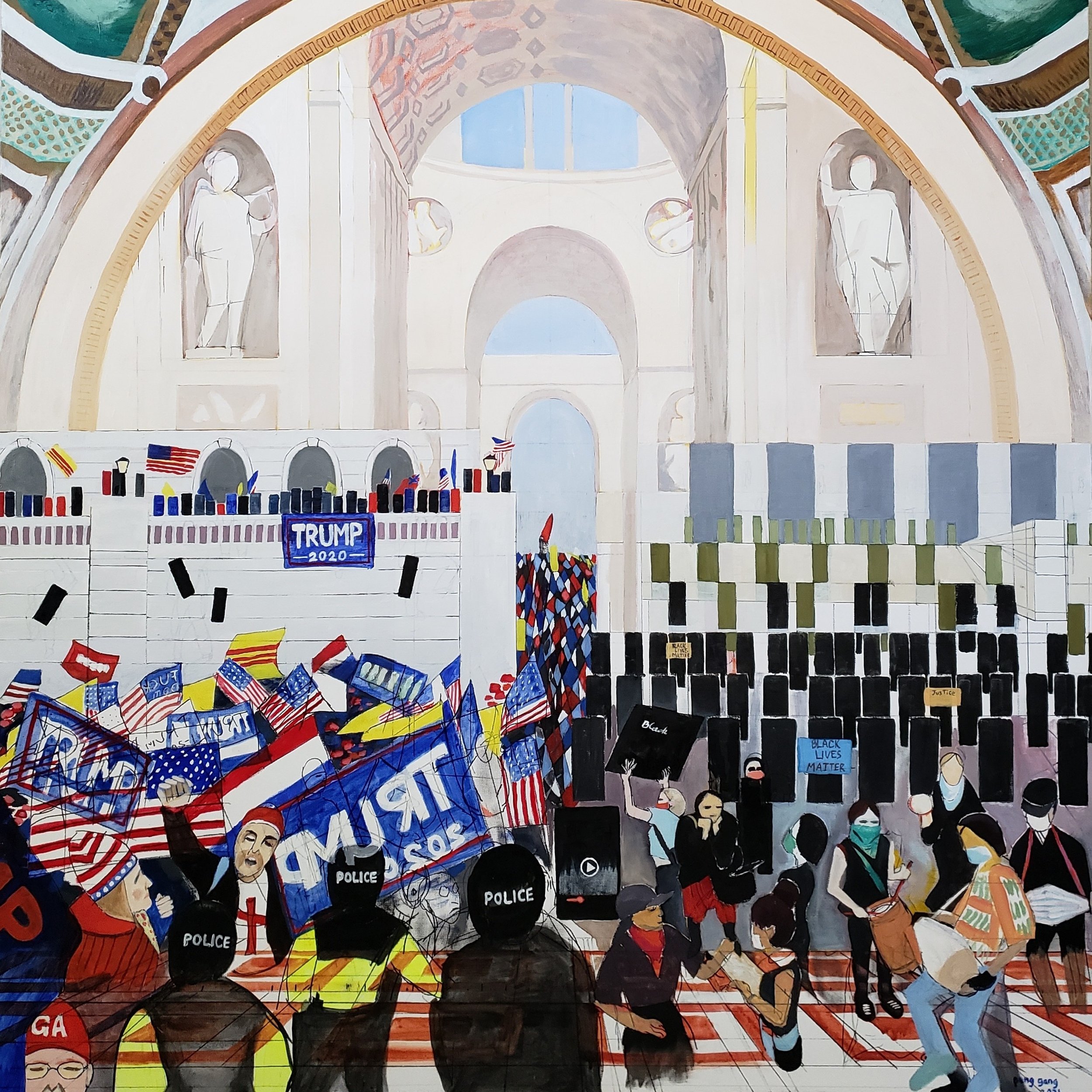
"January 6", Oil on Gallery Profile Canvas, 48" x 48", 2022.

“California - Fremont”, Oil on Canvas, 36” x 48”, 2020
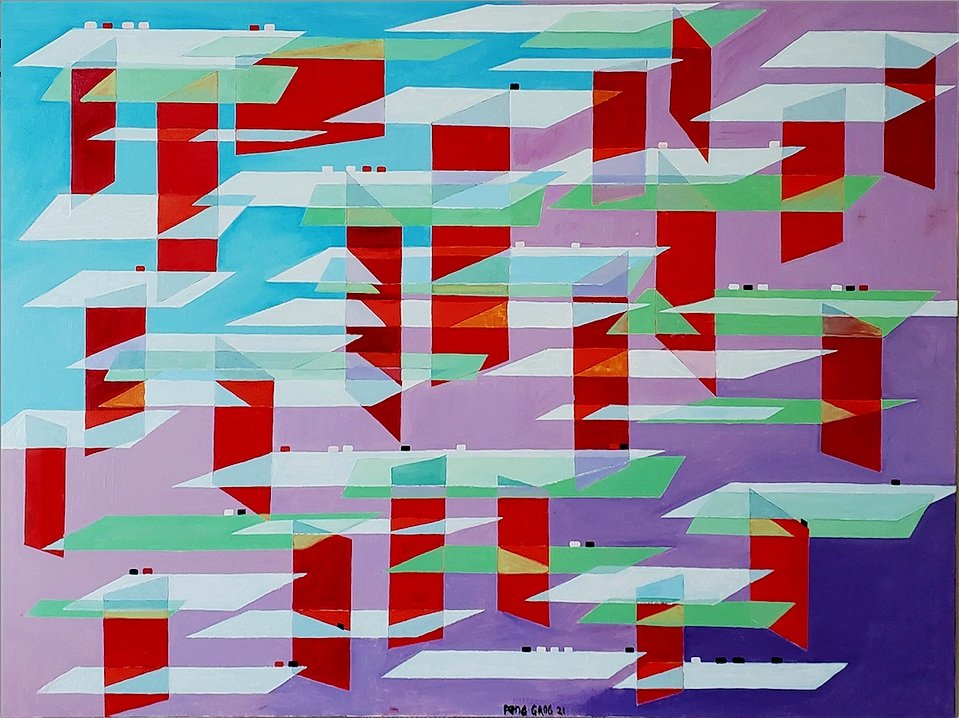
“2020 - Christmas”, Oil on Canvas, 36” x 48”, 2020
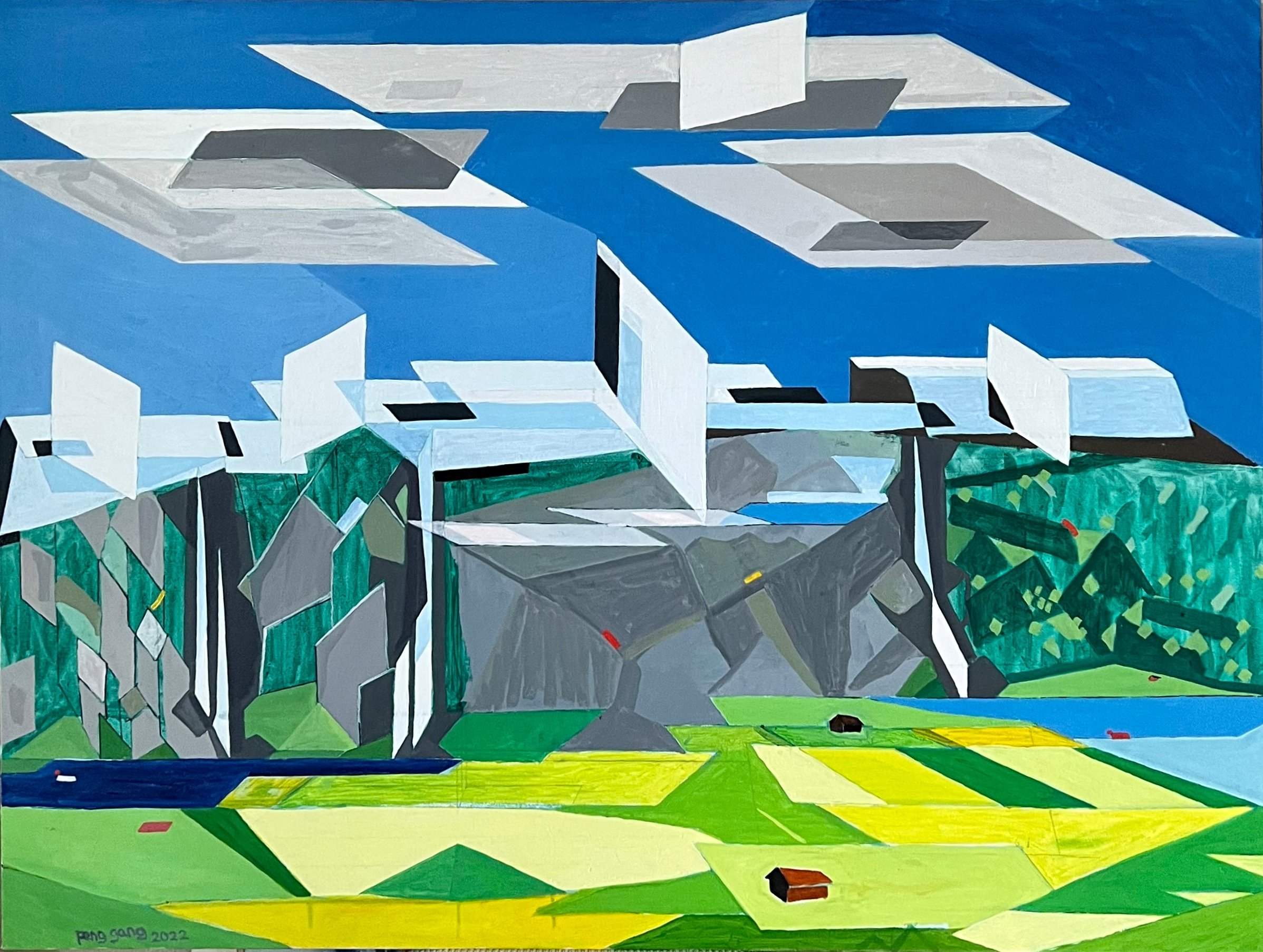
“Switzerland's Spring”, Oil on Canvas, 36” x 48”, 2022

"April, 2020", Oil on Canvas, 30"x60"", 2020
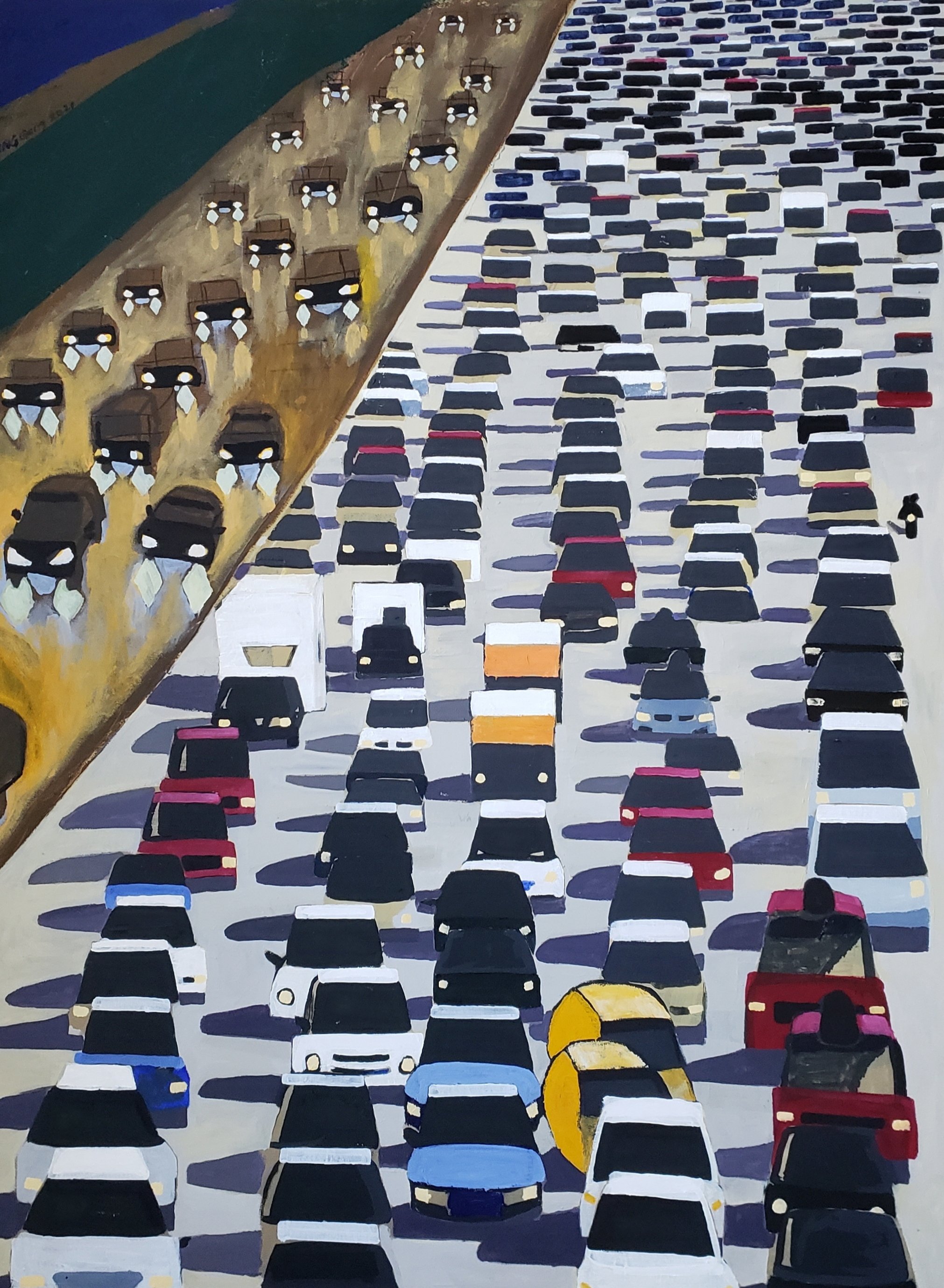
" July 4th, Open Up", Oil on Canvas, 48" x 36", 2021
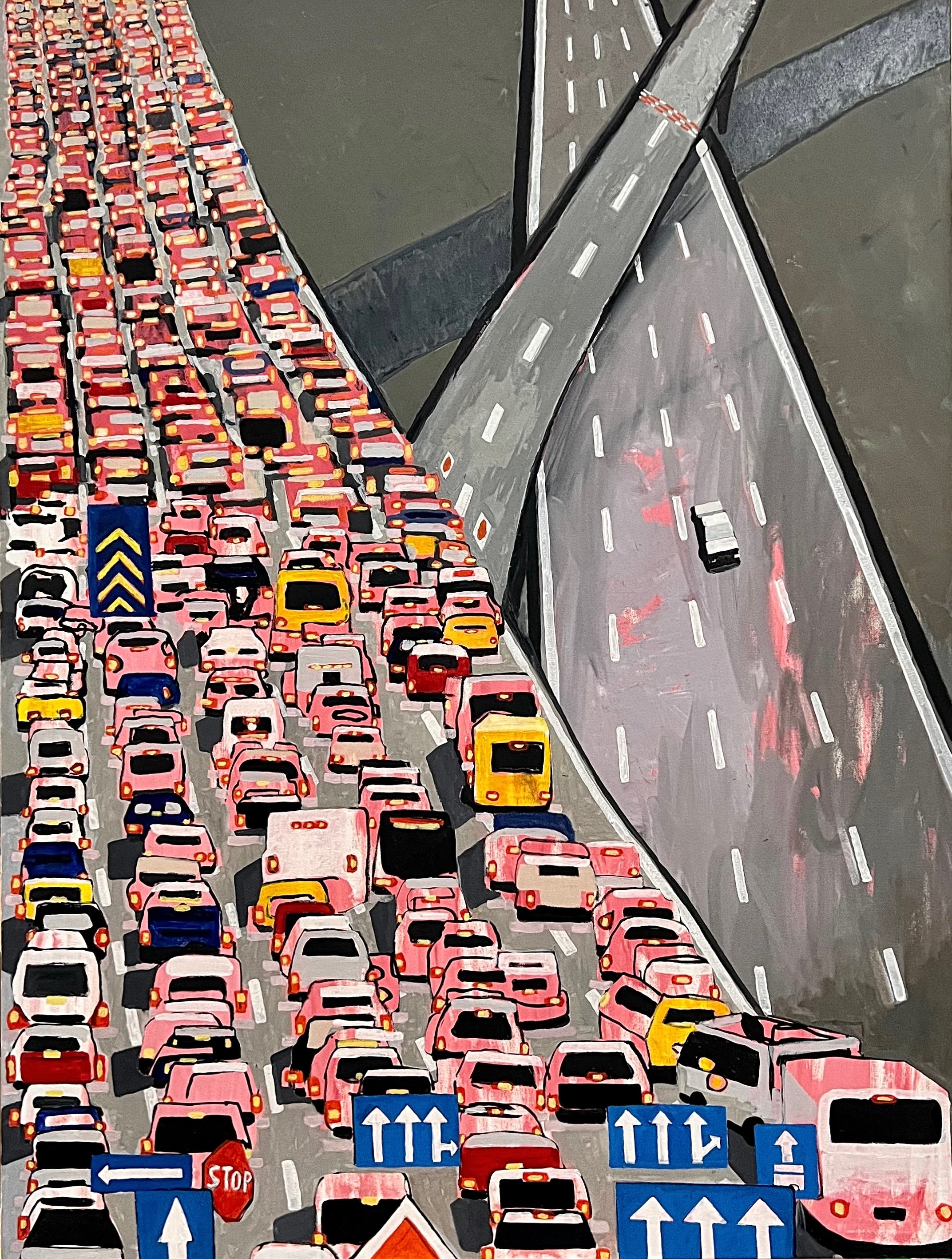
"Going Home", Oil on Canvas, 48"x36", 2022
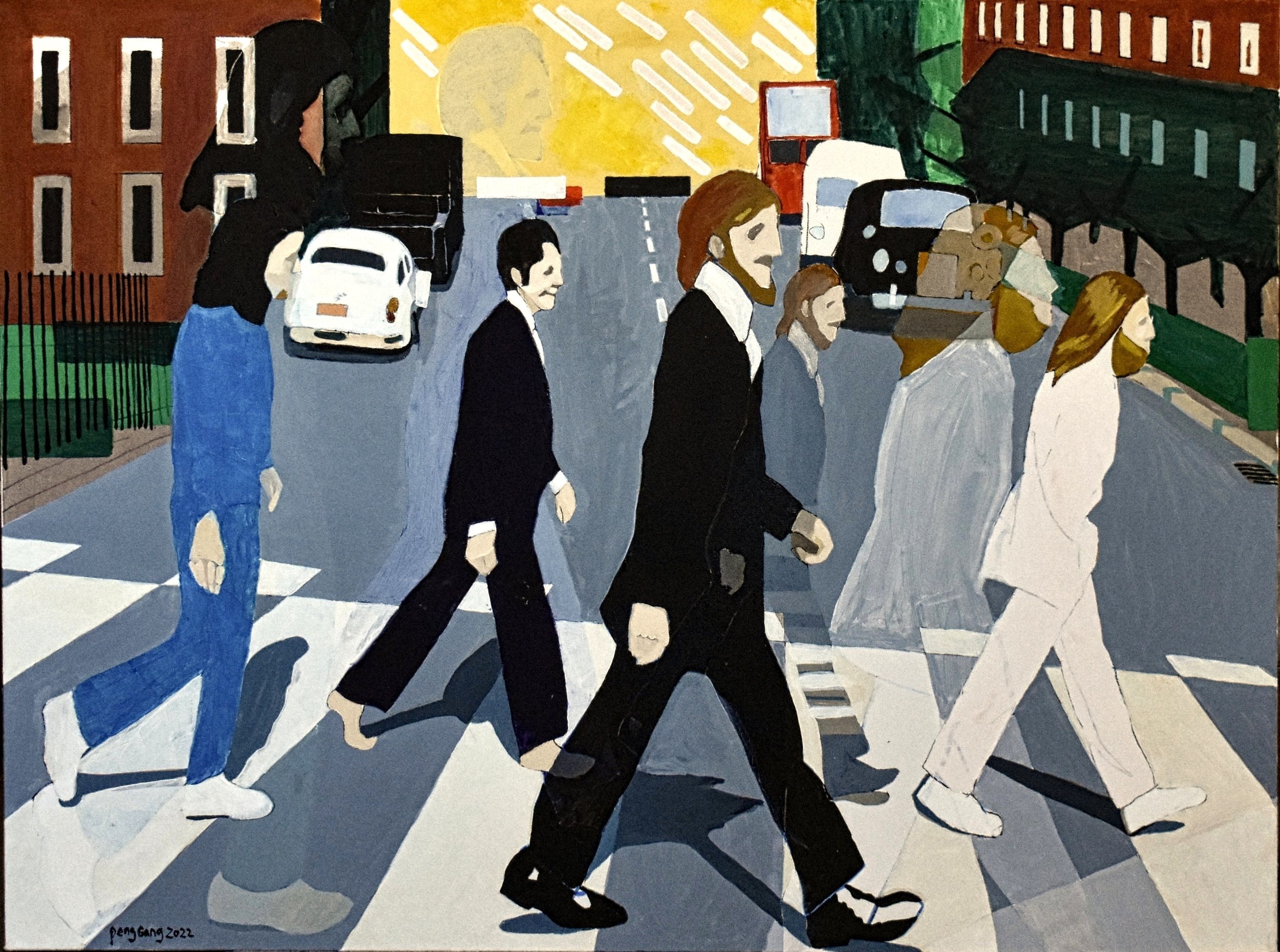
"Crossing", Left of the Triptych, Oil on Canvas, 36" x 48", 2022
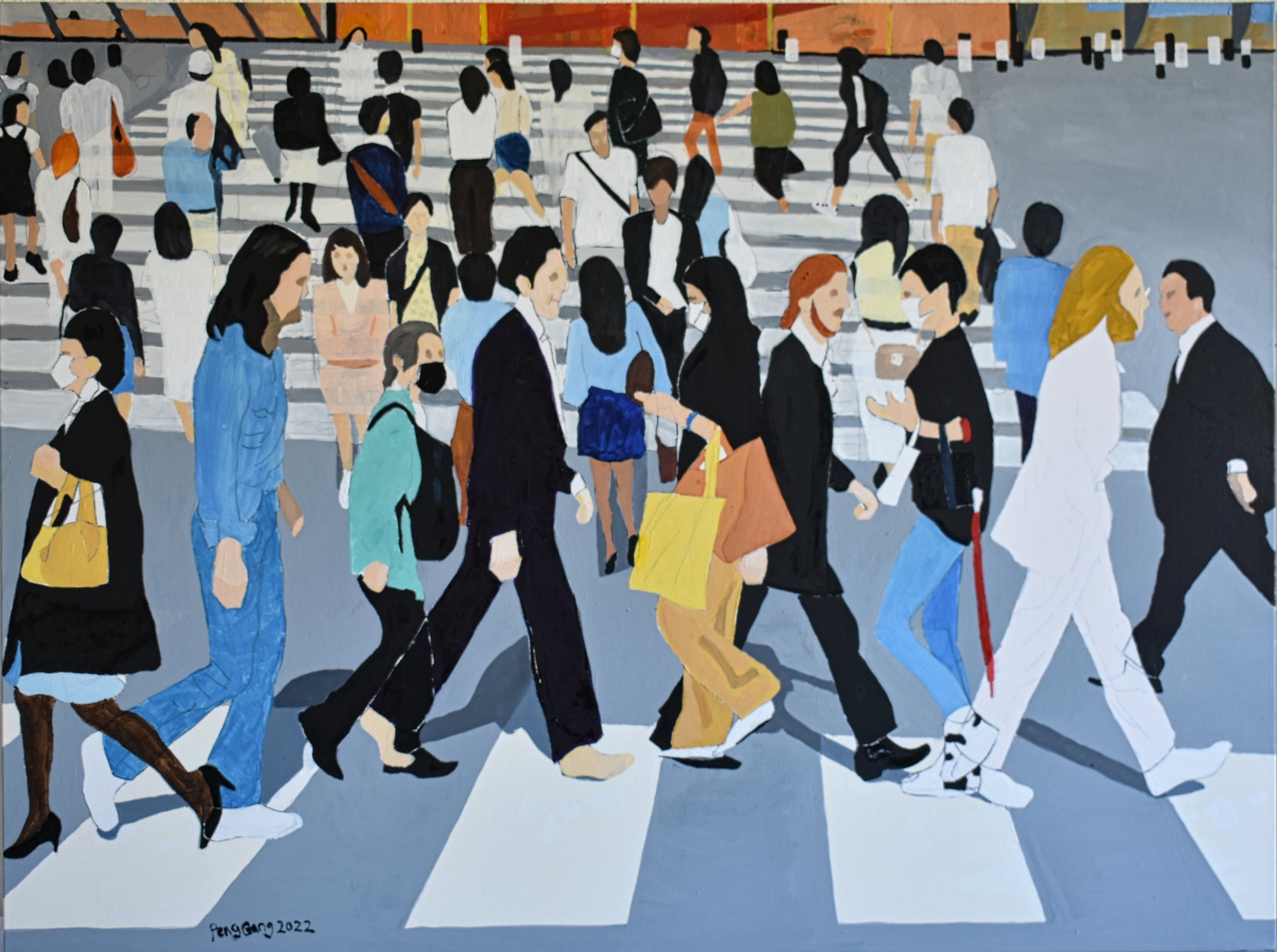
"Crossing", Center of the Triptych, Oil on Canvas, 36" x 48", 2022
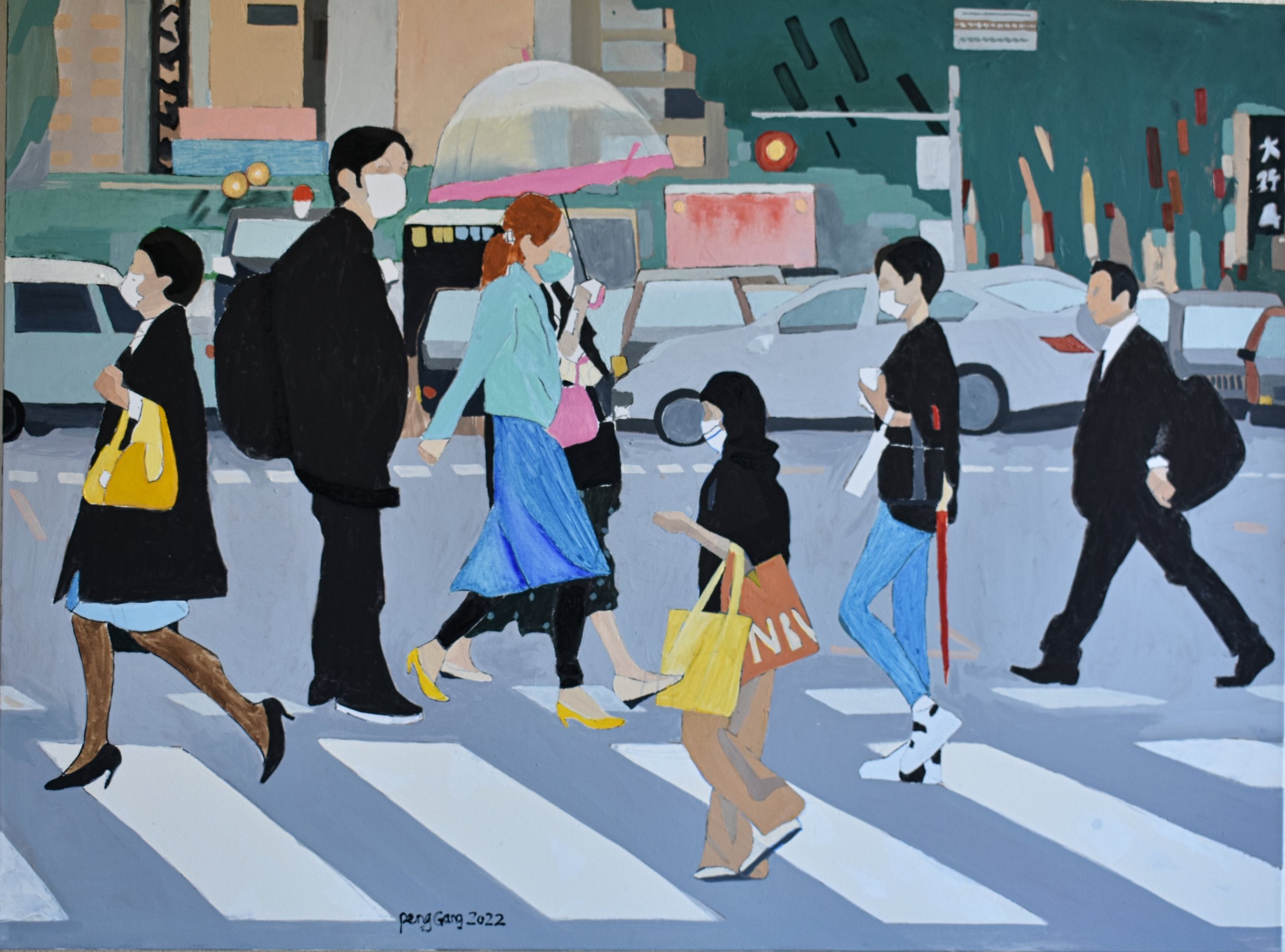
"Crossing", Right of the Triptych, Oil on Canvas, 36" x 48", 2022

"Girl and Message", Oil on Canvas, 48" x 48", 2021
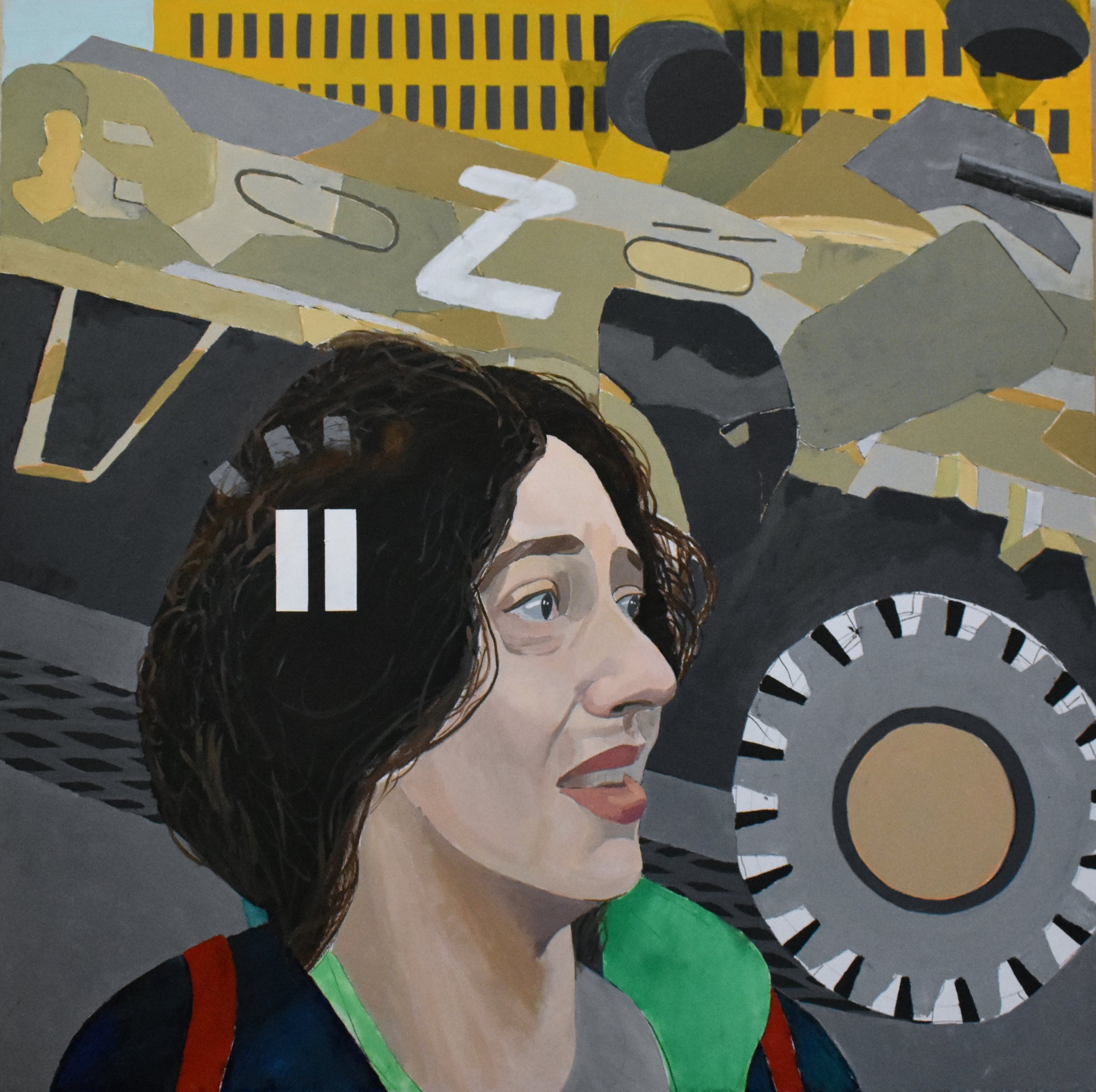
"A Girl", Oil on Canvas, 48"x48", 2022

"A Peru Girl", Oil on Canvas, 48"x36"", 2022

"May 2020", Oil on Canvas, 30"x40", 2020

"Echo Lake (LA)", Oil on Canvas, 36" x 48", 2021

"Connecting", Oil on Canvas, 24"x30", 2022

"Popular Way to Connect", Oil on Canvas, 24"x30", 2022
About the Artist
Grant Peng (Peng Gang) grew up in Beijing. As a boy, in 1972, he was thrilled by the first visit of an American president in 25 years. This event opened the door to Western culture and Grant became fascinated with van Gogh’s paintings.
He imitated his style and had an underground exhibition of Neo-van Gogh paintings in 1972. (Many of the young painters in that underground exhibition became key movers in China modern art i.e. “starts Exhibition” and the “No-name Group”, in 1979.)
Practicality and curiosity led Grant to study math and science. In the late 1970s, China’s “Open Door - Reforming” made it possible for Grant to attend Utah State University. Grant earned a PhD in chemistry, continuing to Harvard University for a post-doctoral Fellowship.
Painting never had a chance to be his profession, but physics was the bread and butter allowing Grant to continue studying art first-hand, traveling throughout the United States and Europe — and visiting Machu Picchu. (The commercialization of Machu Picchu is referenced in one of Grant’s paintings.)
During three decades of work as a physicist, Grant generated over 40 technology patents, including semiconductor devices near the physics limit of 10 nanometers.
Grant’s scientific training, decades-long experience in the tech industry — combined with his artistic background – sharpened his mind and broadened his creativity.


